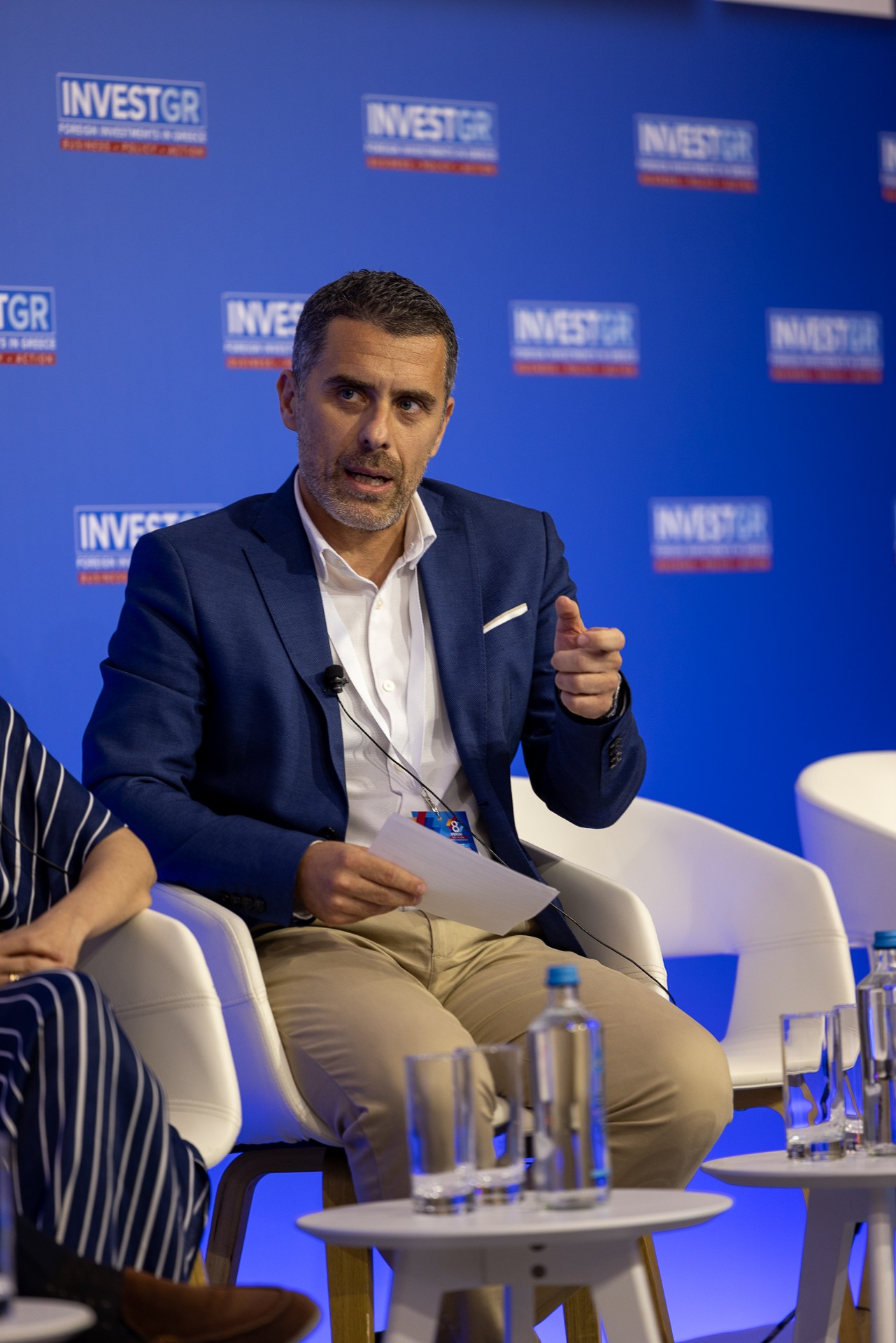In the center of Athens on Tuesday, July 15, and within the framework of the 8th InvestGR Forum, an extremely important discussion took place titled “Human Capital as a Strategic Advantage for Foreign Direct Investment”. The panel brought together top executives from the business and public sectors, with keynote speaker Nikos Chatzinikolas, People & Culture Director of JTI for Greece, Cyprus, Malta and Israel. The discussion was skillfully moderated by journalist Vasilis Nanis, while significant contributions were made by the General Secretary of Labor Relations, Nikos Milapidis, as well as Geli Papadimitriou, Head of Leadership & Culture at Lidl Hellas. The panel highlighted the strategic value of human resources as a lever for development and investment in Greece.
JTI: “Leading role” at the 8th InvestGR Forum on human capital
Responding to a question from Mr. Nanis, Mr. Milapidis emphasized that investment in people is a fundamental parameter of a national strategy that will ensure sustainable development, social cohesion and competitiveness of the Greek economy in the long term. In this context, he noted that the State invests on three levels: a) in preschool age and in the three levels of education, b) in lifelong learning and training within the labor market, c) in health and mental well-being.
As he explained, according to research, investment in kindergarten is the most effective for the professional development of adults. While, with unemployment decreasing, lifelong skill acquisition is a one-way street as it enriches and renews the potential workforce. Finally, emphasis on health and mental balance of workers builds resilience against the unexpected.

A “fundamental” investment
Ms. Papadimitriou emphasized that in recent years there has been a significant shift in corporate culture and funding actions for employees is not considered as “cost”, but as a fundamental investment that gives space for people to flourish within their life cycle inside the company. In fact, she noted that this investment is now holistic, including not only the employee, but also their family members, since they constitute key factors of their own well-being.
Mr. Chatzinikolas stated that for JTI, investment in its people is equal and at the same level with business and social investment, with these three being considered the company’s investment pillars. Emphasizing the integrated footprint that an investment can leave, he brought the example of JTI’s factory in Xanthi, the historic SEKAP unit. Speaking about the investment there, which began in 2018 when the acquisition took place, he analyzed how it contributes holistically to the local economy, employment and income, to the local community, but also to demographic strengthening in a border region of Thrace, with the retention, repatriation or attraction of new workers from other areas.

Leadership in modern reality
Regarding leadership in modern business, Geli Papadimitriou emphasized the importance of values that are cultivated and disseminated through structured programs such as LidlUp Learn & Work and Empowering Leadership, so that there is a common leadership culture among all leadership executives, at all levels. For his part, Nikos Chatzinikolas emphasized the innovative culture that JTI develops, according to which it does not simply seek talents or leaders, but supports each of its people, so that they can extract their talent and cultivate their leadership.
At the closing of the discussion, the General Secretary of Labor Relations referred to the Ministry of Labor’s initiative for the repatriation of Greeks from abroad through RebrainGreece, which is bearing fruit as professionals choose to return, not for emotional reasons but because they find professional opportunities, as the Greek economy develops and the labor market becomes more attractive, with higher wages and better working conditions.
For their part, both Mr. Chatzinikolas and Ms. Papadimitriou praised the fruitful cooperation with the state, mentioned platforms of existing cooperation but also the exploration of new ones, saying that for companies with proven investment disposition, the most critical thing is the State, with its stance, to open the way and facilitate the implementation of ambitious investment initiatives




